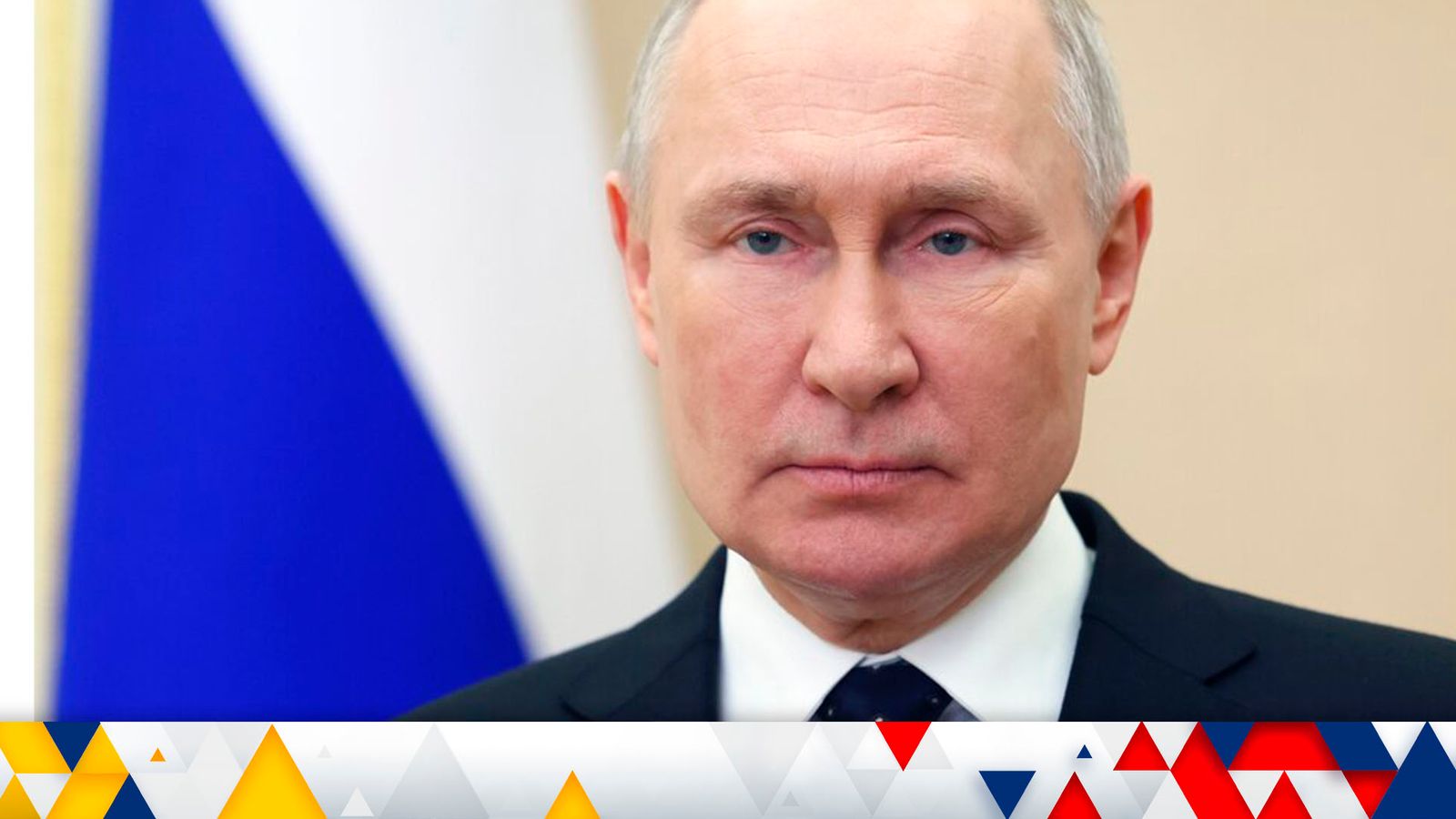Vladimir Putin closes loophole that allowed Russian men to avoid military service

Vladimir Putin has signed a bill allowing authorities to issue electronic mobilisation notices to draftees and reservists.
Russia’s military service rules previously required the in-person delivery of notices to those who are called up for duty.
Under the new law, the notices issued by local military conscription offices will continue to be sent by post, but they would be considered valid from the moment they are put on a state portal for electronic services.
Ukraine war latest: US secrets leak suspect Jack Teixeira charged in court
In the past, many Russians avoided the draft by staying away from their recorded address.
The new law closes that loophole in an apparent effort to enable the Kremlin to speedily beef up the military ahead of a widely anticipated Ukrainian counteroffensive in the coming weeks.
Recipients who fail to show up for service would be barred from leaving Russia, have their drivers’ licences suspended and would be barred from selling their apartments and other assets.
The bill signed into law by Mr Putin was published on the official register of government documents.
Kremlin critics and rights activists denounced the legislation as a step toward a “digital prison camp” that gives unprecedented powers to the military conscription offices.
Advertisement
Lyudmila Narusova, the widow of former St Petersburg mayor Anatoly Sobchak, was the only house member who spoke against the measure when the Federation Council, the upper house of parliament, considered the bill on Wednesday.
Ms Narusova, whose late husband was once the president’s mentor, claimed that the bill contradicts the country’s constitution and various laws, and strongly objected to its hasty approval.
The swift enactment of the law fuelled fears of the government initiating another wave of mobilisation following the one that Putin ordered in the autumn.
Read more:
Navalny on ‘suicide squad’ prisoner recruits
How Navalny was sentenced to nine years in prison
‘Putin is not Russia’ – Navalny’s war protests
Please use Chrome browser for a more accessible video player
0:27
‘Russia knew about special forces long before leak’
Russian authorities deny that another mobilisation is being planned. Kremlin spokesman Dmitry Peskov said this week that the measure was needed to streamline the outdated call-up system in view of the flaws that were revealed by last fall’s partial mobilisation.
“There was a lot of mess in military conscription offices,” he said. “The purpose of the bill is to clean up this mess and make the system modern, effective and convenient for citizens.”
Putin announced a call-up of 300,000 reservists in September after a Ukrainian counteroffensive pushed Russian forces out of broad areas in the east.
The mobilisation order prompted an exodus of Russian men that was estimated to number in the hundreds of thousands.